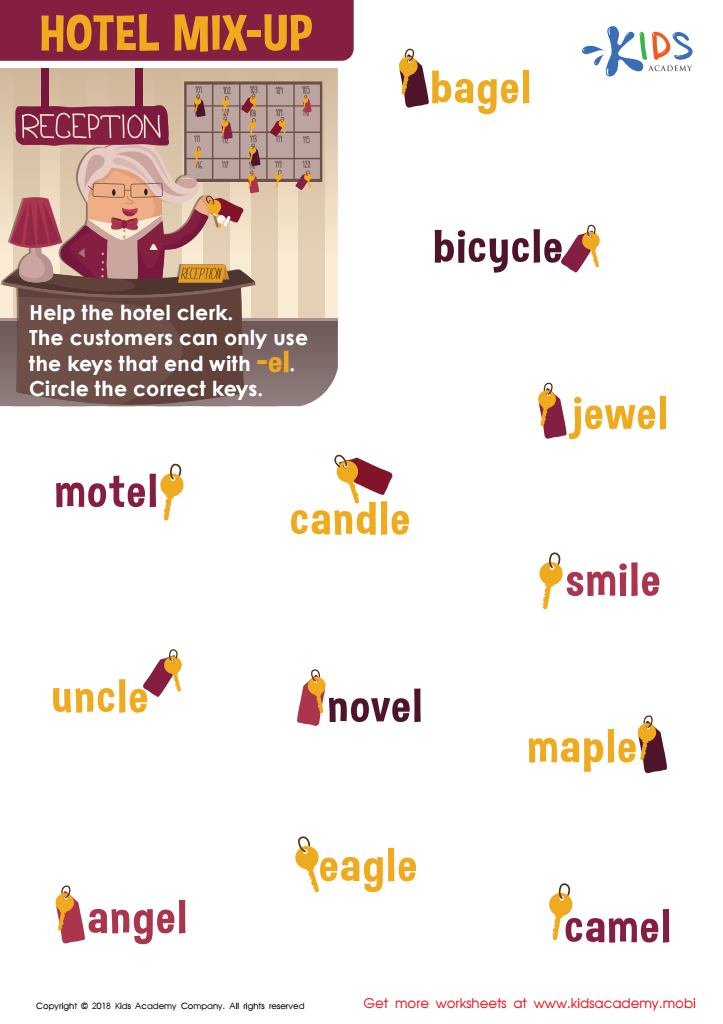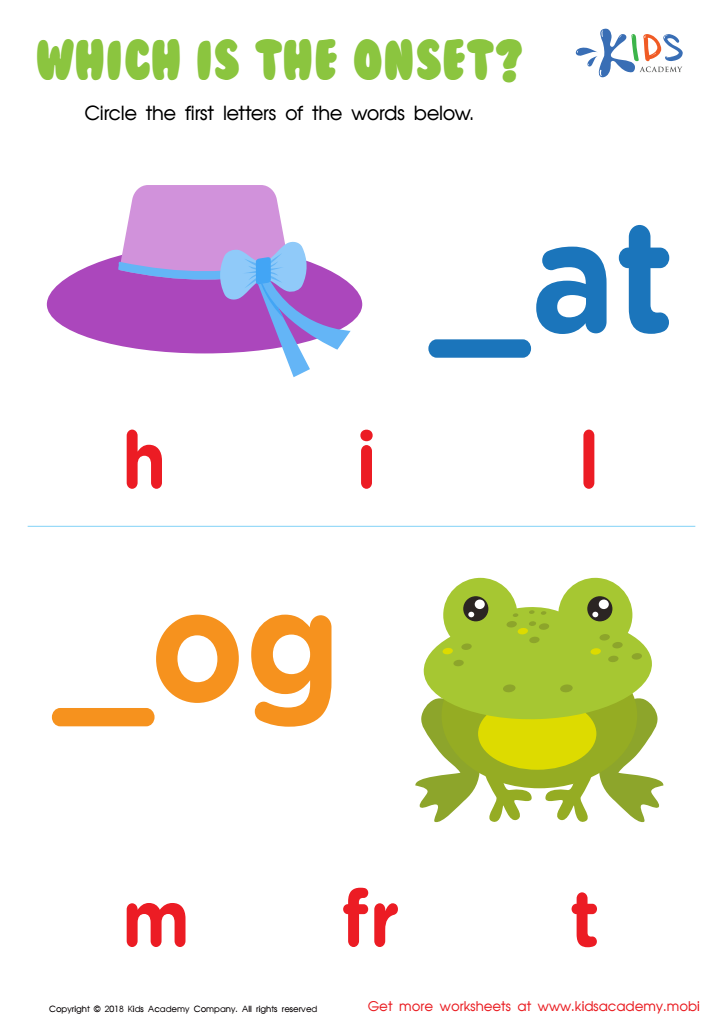Reading comprehension Ending Sounds Worksheets for Ages 3-8
3 filtered results
-
From - To
Enhance your child's reading skills with our engaging "Reading Comprehension Ending Sounds Worksheets" designed for ages 3-8. These worksheets focus on identifying ending sounds, promoting phonemic awareness and improving literacy. Each worksheet is carefully crafted with fun illustrations and interactive elements, making learning enjoyable for young learners. As they color, trace, and complete exercises, children will reinforce their understanding of word sounds while boosting their confidence in reading. Ideal for teachers and parents alike, these worksheets serve as a valuable resource to foster a love of reading and support early educational development. Explore fun-filled ways to learn today!


Hotel Mix-up Worksheet


Which Is the Onset? Worksheet


Phonics and Word Recognition: Assessment 1 ELA Worksheet
Reading comprehension and understanding ending sounds are foundational skills that critically influence literacy development in children aged 3-8. When children grasp the concept of ending sounds, they enhance their phonemic awareness, which is central to decoding words while reading. Recognizing how words sound and their endings aids in improving vocabulary and overall linguistic proficiency.
For parents and teachers, fostering these skills promotes more fluent reading, enabling children to tackle increasingly complex texts. As children learn to identify ending sounds, they become better equipped to predict words, understand meanings, and develop patterns in language, which are essential for comprehension.
Moreover, at this crucial developmental stage, engaging children in phonetic games and activities focused on ending sounds can spark their interest in language and reading. Fun, interactive methods not only build skills but also instill a lifelong love for reading.
As these young learners become confident in their reading abilities, they are more likely to engage thoughtfully with texts, enhancing critical thinking skills. Ultimately, ensuring children are proficient in reading comprehension and ending sounds lays a solid foundation for future academic success. This highlights the importance of active involvement from both parents and teachers in nurturing these essential literacy skills.

 Assign to My Students
Assign to My Students


















